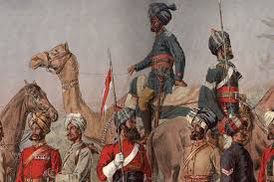PITT'S INDIA ACT 1784
- Legal Aesthetic

- Oct 14, 2021
- 2 min read
Updated: Dec 17, 2022
Circumstances leading to the execution of the PITT's India Act:
1. Defects of Regulating Act,1773:
•There were many flaws in the Regulating Act,1773 because of Warren Hastings and his non-cooperative councillors.
•There was no adequate control over the Council and subordinate governments of Bombay and Madras.
•There was a vague jurisdiction that lead to conflicts between the Council and the Court.
•The Regulating Act was beyond amends hence the PITT's India Act, 1784 was needed to cover the defects of the Regulating Act, 1773.
2. Ineffective control of the British Government over the company:
•The whole administration was packed with corrupt officers during the authority of Warren Hastings
•House of Commons in May 1782 decided to recall Hastings and Homby.
•Court of Proprietors defined the resolution and kept both these persons in their offices.
•Parliament decided to take substantial steps to curb the prevailing corruption.
3. Wrong foreign policy of the company:
•British subordinates used to neglect the provisions of the Regulating Act, 1773
•They used to conduct wars with Indian rulers on the behalf of the company and not the crown.
•Many expensive wars were fought during this time like the Rohilla war, Anglo-Maratha war, 2 Anglo-Mysore wars etc.
•For Crown to regain control over the activities of the company and also to take strict measures to reduce the expenses because of irregularities there was a need for the PITT's India Act, 1784.
4. Economic causes:
•British trade suffered a major blow because of 2 reasons:
a)Briitish subjects used to disregard the rules and regulations set by the Crown to govern their activities because according to them these codes of conduct negatively affect their freedom.
b)There was an ineffective government.
•Loss of American provinces increased the importance of commercial trade between India and Britain.
•When India promised to provide a market for Britain made goods then the British lawmakers started to rethink expanding and gaining more control over the company's colonies in India.
5. Wealth earned by corruption which was done by the Company's officers:e
• Corruption was one of the most prevalent malpractice at that time
•Such officers lived like English Nawabs (people with lots of money).
•These Nawabs also started buying seats in the parliament to influence the policies of the government.
•This escalated the need of getting the Company under the control of Parliament.
6 . The Welfare of India
•The makers of the PITT's India Act, 1784 demanded Parliamentary control over the Company's administration, keeping in mind the needs of their subjects. They were moved by the Humanitarian concerns.
•Due to the corrupt administration of the Company, the English rule lost its goodwill to a great extent in India.
•Mr. Piitt aimed to introduce reforms through this act so that English rule could regain stability and popular support from the natives.






Comments